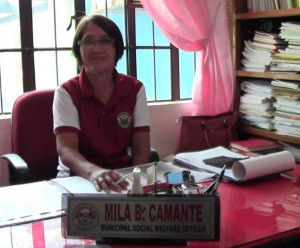 The Local Government Unit (LGU) of Laoac, Pangasinan appreciates the importance of having a list of poor households provided by the Listahanan or the National Household Targeting System for Poverty Reduction (NHTS-PR) by entering into a Memorandum of Agreement (MOA) with the Department of Social Welfare and Development (DSWD).
The Local Government Unit (LGU) of Laoac, Pangasinan appreciates the importance of having a list of poor households provided by the Listahanan or the National Household Targeting System for Poverty Reduction (NHTS-PR) by entering into a Memorandum of Agreement (MOA) with the Department of Social Welfare and Development (DSWD).
“Ang Listahanan ay isang napakagandang data sapagkat ito ay nagiging basehan ng LGU Laoac sa pagbibigay ng mga social services at saka iba’t-ibang programa na nauukol sa mga nangangailangan naming mga kababayan (Listahanan data is useful because it serves as a basis of LGU Laoac in providing social services and different programs to those in need citizens of the municipality),” said Laoac Municipal Social Welfare and Development Officer (MSWDO) Mila B. Camante in an interview.
According to her, LGU Laoac headed by Mayor Silverio D. Alarcio Jr. strongly believes that the data from Listahanan is a reliable reference in targeting poor households in need of social protection programs and services for poverty alleviation.
Most of the beneficiaries of all the programs and projects that are being implemented by LGU Laoac comes from the Listahanan list of poor households, including the “Special Program for the Employment of Students (SPES)” where 30-50 poor students work as assistants in the offices of LGU Laoac during summer so they can earn money for allowance in the coming school year.
Listahanan also specifically identifies poor households without access to potable water system and toilet facilities which is why two of the yearly projects of LGU Laoac are providing potable water system to the poor households who do not have access to water suitable for drinking and donating 150 toilets to the poor households who do not have their own comfort rooms.
Further, poor farmers in LGU Laoac in the Listahanan are the priority recipients of free fertilizers, seedlings, and farm machineries in partnership with the Department of Agriculture.
MSWDO Camante also shared that LGU Laoac has funded sustainable livelihood programs for poor households like making Tupig (a popular native delicacy) and vinegar so the beneficiaries can have other sources of income. (by: Jaymante Pearl B. Apilado, Administrative Assistant III, NHTS-PR/Listahanan)

